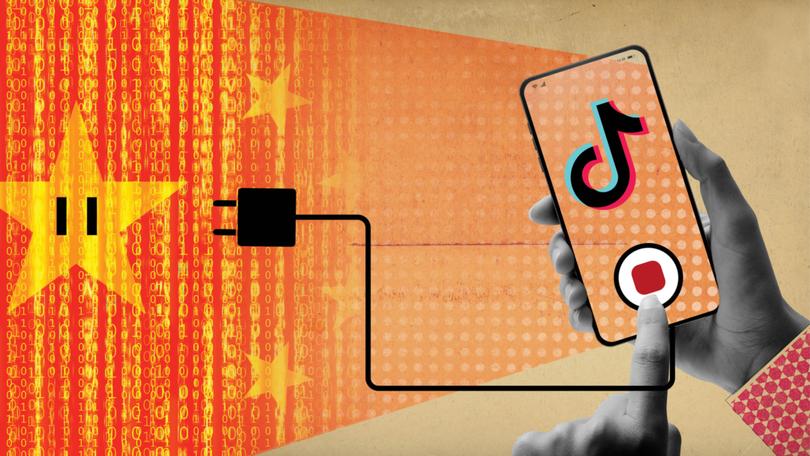The Economist: To stay on Western screens, TikTok needs new owners
A platform as large and influential as TikTok needs to be separated from the influence of a country as manipulative and ideological as China.

Tiktok’s addictive videos keep its users up late into the evening. But the app’s links to China are causing politicians to lose sleep, too. On March 13th America’s House of Representatives will vote on a bill that would force TikTok’s Chinese owner, ByteDance, to sell the app to an owner of another nationality, or else face a ban in America, TikTok’s largest market.
Other countries, from Britain and France to Australia, have begun to introduce some restrictions of their own. The world’s most downloaded app, by one measure, may soon start disappearing from screens. To stay on them, TikTok must cut its ties to China.
Some fears about TikTok are overblown. True, the firm hoovers up plenty of data about its users. But there is no evidence that it takes more than it claims (or indeed any more than rivals such as Facebook). If Chinese spies want to find out about Americans, the country’s lax data-protection laws allow them to buy such information from third parties. Banning Chinese apps that gather personal data would mean banning many more of them, cutting off Western consumers from some of the world’s most dynamic digital services.
Sign up to The Nightly's newsletters.
Get the first look at the digital newspaper, curated daily stories and breaking headlines delivered to your inbox.
By continuing you agree to our Terms and Privacy Policy.TikTok has also injected a welcome shot of competition into an otherwise concentrated social-media market. Six of the world’s ten most-downloaded apps last year were made by Meta, Facebook’s owner. TikTok, which beat them all to the top spot, has brought in a wave of innovation and disruption. Consumers are better off for it.
Yet there is one reason why governments are right to worry—and why America’s new crackdown is justified. TikTok has evolved from a lip-synching music-video app into a broad media platform with more than 150m users in America alone. A third of American adults aged under 30 consider TikTok a source not just of entertainment but of news. It is therefore a real concern that TikTok has links to China, whose government sees the media as a tool of propaganda and which is in deep ideological conflict with the West.
Most countries already have laws restricting foreign ownership of old media, such as television and the press (ask Rupert Murdoch, who became a proud American citizen shortly before taking over Fox News). A bid by Abu Dhabi’s ruling family for the Telegraph newspaper is under close scrutiny in Britain. A Chinese company would not be allowed to buy cnn. Yet TikTok is fast becoming more influential.
It is time for governments to apply the same logic to new media as they do to old. If anything, the new platforms require greater vigilance, since their output is so opaque. A newspaper’s editorial line can be seen in black and white; by contrast, every TikTok user gets a different feed, and the company does not provide adequate tools for researchers to examine its output in aggregate. Even if studies suggest bias—some allege a skew in TikTok’s Gaza coverage, for instance—it is impossible for outsiders to know whether TikTok’s algorithm is responding to the preferences of users, or to someone in Beijing putting their thumb on the scale.
TikTok admits that it once blocked videos on subjects like the Tiananmen Square massacre, but insists things are different now. It has made extensive, expensive efforts to hold American users’ data separately from others’ and opened its code for inspection. But it has undermined itself, too. It argues that selling its American operations would be impractical, since they are so closely linked to the rest of the business — thus casting doubt on its claims of strict separation from Beijing.
It has tried to rally users to its cause, pinging some with a message to contact their member of Congress. That has only emphasised its potential as a political force; some wavering representatives are said to have flipped against TikTok after their switchboards were jammed by callers. A drip of scandals, such as ByteDance’s admission that its employees snooped on American journalists’ TikTok habits, has hardly helped.
The best outcome is one in which TikTok survives. It is a source of competition and innovation, as well as fun. The bill before Congress allows ByteDance to sell up, rather than simply shut down. If it is unwilling to do so—or, more likely, if China does not let it—ByteDance could float TikTok as a public company in America or a third country.
Americans and others are better off with TikTok on their screens. But it is time the same standards were applied to new media as old. That requires separating a platform as large and influential as TikTok from the influence of a country as manipulative and ideological as China.
